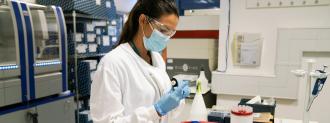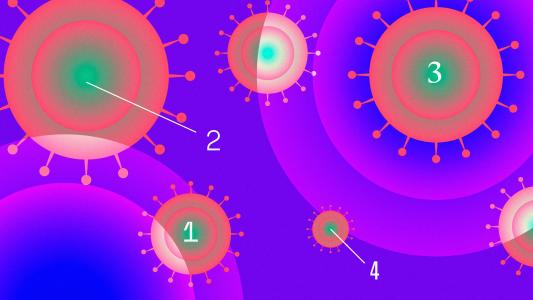Most of us have spent the past year trying to avoid COVID-19. Now, up to 90 healthy people are going to deliberately expose themselves to the coronavirus — for science.
As part of the world’s first COVID-19 human challenge study, these volunteers will be infected with the coronavirus in a controlled environment under the supervision of doctors.
The goal is to determine the smallest amount of the virus needed to cause COVID-19 — so that we can effectively protect people against it.
What Are Human Challenge Trials?
Human challenge trials have been around since long before COVID-19 — in the past, they’ve helped us combat smallpox, cholera, malaria, yellow fever, the flu, and a host of other illnesses.
Though each trial is different, the general idea is the same: doctors deliberately expose some people to an illness so that they can then study it in a controlled environment.
From these trials, they can learn about a disease’s symptoms, the immune system response it provokes, and the efficacy of different treatments or vaccines.
Testing new vaccines on human challenge trial participants can cut down on development time — researchers don’t have to wait for enough people to contract an illness naturally to find out whether their vaccine works, or how it compares to others.
Human challenge trials have a controversial history — in some cases, “volunteers” didn’t know they were being exposed to a pathogen until after the fact — but today, the studies must follow a strict set of ethical guidelines that make participants’ health and consent the top priority.
The COVID-19 Human Challenge Study
Experts have been divided on the need for a COVID-19 human challenge study almost since the pandemic began, when having a vaccine before the end of 2020 seemed like a pipe dream.
In October, the U.K. government took the first big step toward a challenge trial, agreeing to invest $44 million into it if the nation’s ethics committee signed off on it.
On February 17, the committee gave the trial the green light, and it’s now expected to begin in the next few weeks.
We’re not aiming to make any of the subjects sick.
Peter Openshaw
While the timing might seem strange — why deliberately infect people with the coronavirus now, with multiple vaccines already authorized? — the U.K’s COVID-19 human challenge study could be incredibly useful as we work to bring the pandemic to an end.
“While the first wave of vaccines are being rolled out, human challenge studies could also be pivotal in helping to shape the timings and doses of existing vaccines, finding out how long one dose is protective for, and if they are effective against new variants of the virus,” Chris Chiu, the study’s chief investigator, said in a press release.
All of these are pressing issues, as new mutations and variants crop up every day and health authorities debate delaying second doses, mixing and matching vaccines, or using half-doses to stretch existing vaccine supplies.
The U.K.’s COVID-19 human challenge study could also help researchers better understand mild and asymptomatic infections, which are a major driver of the pandemic.
The Trial Details
The researchers are now looking for 90 volunteers between the ages of 18 and 30 to participate in the trial. These volunteers should be healthy and should not have had COVID-19 in the past.
During the trial, the volunteers will have a small amount of the coronavirus squirted up their noses so that researchers can study their response to the virus.
Volunteers will be quarantined in a medical facility for 17 days.
The goal of this is to determine the smallest amount of coronavirus needed to cause an infection, as well as study the earliest symptoms of COVID-19 and how an infection takes hold.
“(I)f we can just demonstrate that the virus grows in the nose, that’s really the endpoint we’re looking for,” co-investigator Peter Openshaw told the Washington Post. “We’re not aiming to make any of the subjects sick, and we’re doing that by very slowly escalating the dose.”
Volunteers will be quarantined in a medical facility for 17 days after exposure and will be given $6,243 for participating in the COVID-19 human challenge study.
If this first stage goes well, future stages could test vaccines directly, comparing their efficacy against one another or against different variants of the coronavirus.
We’d love to hear from you! If you have a comment about this article or if you have a tip for a future Freethink story, please email us at [email protected].






